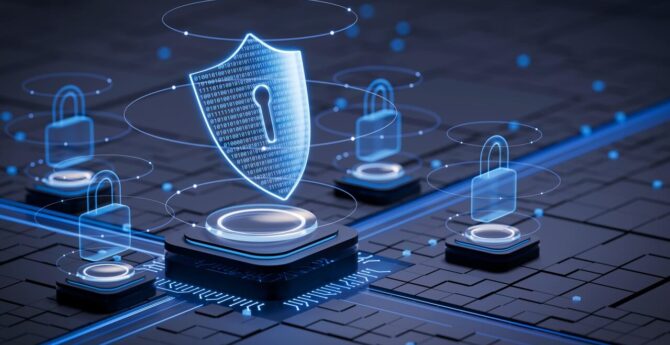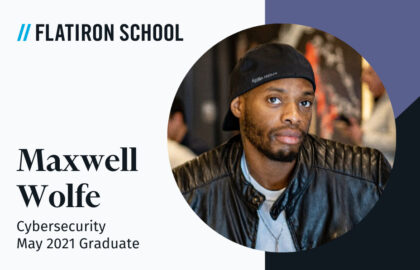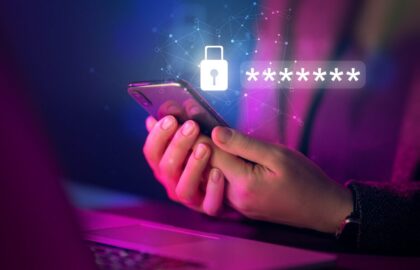Cybersecurity

Flatiron School
What Certifications Do You Need for Cybersecurity?
If you are considering a career in Cybersecurity, you’ve likely asked yourself “what certifications do you need for cybersecurity?” If that’s the case, then look no further! In this post, we’ll break down the top certifications and their prerequisites. Why do you need a cybersecurity certification? According to Bureau of Labor Statistics projections, the cybersecurity […]

Partnerships
Akamai and Flatiron School: Working Together to Strengthen the Future of Cybersecurity Talent
At Flatiron School, we’re committed to making tech careers more accessible. That’s why we’re thrilled to work with Akamai, a global leader in cloud security and content delivery, to help make our vision of a diverse tech industry a reality. Akamai is our latest employer partner to sign on to support our Lovelace and Ford […]

Alumni Stories
Maxwell Wolfe: DJ to Cybersecurity
“I appreciated the collaborative environment of the program, where we were encouraged to work in teams, brainstorm, and devise solutions for our projects.”

Career Advice
Exploring the Benefits of Online vs. In-Person Cybersecurity Bootcamps
Flexibility, accessibility, cost, and how well you function in an environment that might hold distractions are just a few factors to consider when choosing an online or in-person cybersecurity bootcamp experience.

Tech Trends
Why Patch Management is Essential for Businesses
Discover the paramount importance of patch management in fortifying a business's invaluable data and vital systems against cyber threats.

Career Advice
Age Diversity Potential for Careers in Cybersecurity
Older adults bring a wealth of experience and a strong work ethic that are invaluable for cybersecurity careers. This post explores additional (and highly valuable traits) that older workers possess that make them solid candidates for careers in the field.

Career Advice
The Best-Paying Cybersecurity Careers in 2025
There are many cybersecurity career paths you can take. Here are our top picks for 2025 (and beyond) based on career growth and compensation.
Browse by Category
- All Categories
- Admissions
- Alumni Stories
- Announcements
- Artificial Intelligence
- Career Advice
- Cybersecurity Engineering
- Data Science
- Denver Campus
- Diversity In Tech
- Enterprise
- Flatiron School
- How To
- NYC Campus
- Online Campus
- Partnerships
- Software Engineering
- Staff / Coach Features
- Tech Trends
- UX / UI Product Design
- Women In Tech
